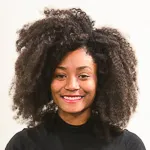In the activist community, the word self-care is thrown around in a sea of other buzzwords, like radical, trauma, violence and patriarchy. The activist culture is so inundated with self-care that I became completely desensitized to friends using it — begging me to subscribe to this abstract, vague idea, and almost meaninglessly scolding me to partake in acts associated with it.
Self-care is any intentional action one takes towards one’s own physical, mental and emotional well-being. Self-care can take on the form of naps, good food, exercise, going to the doctor, stepping back from commitments, reflection, meditation and counseling. In other words, self-care encompasses acts that quintessential Stanford students convince themselves they have little to no time for. I convinced myself that self-care was at the bottom of my priority list until I had no choice but to make it a first concern.
I began Spring quarter withdrawn from my friends, family and everyone who cared about me. I could not write. I could not make it to my meetings, and I could barely make it to class. Everything lacked luster, and nothing really mattered. I felt burdened, like I had no control over my emotions, and I did not understand why.
A concerned friend signed me up on for a session with a counselor as part of the Black community’s initiative to provide Black Counseling and Psychological Services counseling on Stanford’s campus. Since the first session with my therapist, I’ve realized the extent of the stress I have internalized being a Black woman on this campus. When I voice my experiences, thoughts and opinions others threaten, shame and insult me behind the cowardice of anonymity. Between the The Stanford Daily online comment section and Yik Yak posts, I have felt unsafe. This feeling of danger has pervaded and manifested itself as the paralyzing vulnerability I feel walking down the street.
Meeting with a counselor gave me language and affirmation for the gamut of emotions I found myself at a loss for words to express. I was afraid of imaginary bigots, and the emotional toll it took on me was also physical. Seeing a counselor for the first time in my life was my act of self-care. I now am sure that the battle I was engaged in mentally and emotionally just to keep going is not impossible. It is now the only option.
Self-care is not only a form of self-love, it is a form of resistance. Living and surviving in the midst of scrutiny and violence is a radical act. Intentionally caring for your well-being and making attempts to love yourself despite insults and dangers against your being is a radical act. Counseling is giving me the self-awareness of which I was previously ignorant. I did not know I struggled with anxiety. I did not know that there was a reason for the physical and mental abnormalities I had started experiencing as my stress levels rose during the year. I did not know that I was burnt out. I definitely did not know that what I was feeling was not unique; many people on this campus are hurting.
As a Stanford student, I was able to have access to this important component of health, and I even received encouragement to do so. This is a privilege I have at this institution, but I cannot help but wonder if this form of resistance and self-care will become inaccessible to me upon graduation. I have been hearing “there is a stigma in the Black community around mental health” all my life, but there are more factors than stigma at play when it comes to the relationship between Blackness and mental health. Matters of support and access are also pivotal contributors that determine who gets to exercise this form of resistance.
Advocacy and voicing my thoughts are not disappearing from my life, and neither are the anxieties that come with having an intersectional identity. People who do this work must never forget what self-care truly means, and we must practice it. We must hold each other accountable, and we must check in with our communities. At Stanford, we have the privilege of resources that many do not have access to outside of this bubble. It is important to acknowledge this fact for our own well-being while navigating hostile spaces. When we leave here, we must work to make self-care a part of our lives, and strive for self-care implementations for in our home communities who may not have access to other options.
Audre Lorde said, “We were never meant to survive.” It is time to survive, live and resist.
Contact Mysia Anderson at mysia ‘at’ stanford.edu.
